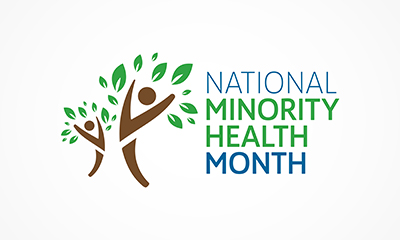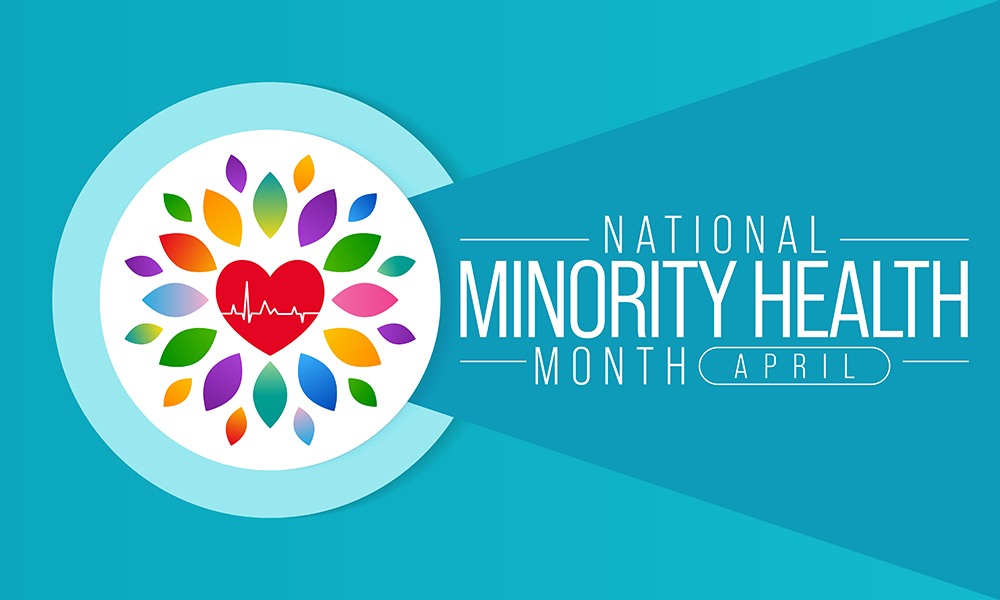
April is observed as National Minority Health Month in the United States. It is a time to raise awareness about the health disparities that persist among racial and ethnic minority populations and promote efforts to improve their health outcomes. This year’s theme, “Better Health Through Better Understanding,” emphasizes the importance of cultural competency and understanding in delivering equitable healthcare to all communities. Let’s explore the significance of National Minority Health Month, the health disparities faced by minority populations, and the ways in which we can work towards achieving health equity.
What is National Minority Health Month?
National Minority Health Month was established in 1989 by the U.S. Department of Health and Human Services (HHS) to raise awareness about the health disparities that exist among racial and ethnic minority populations. The observance was initially just a week-long, but it was extended to a month-long observance in 2002 to allow for greater outreach and education efforts. The HHS Office of Minority Health (OMH) leads National Minority Health Month activities and initiatives, which include health fairs, webinars, and other events designed to promote health equity and eliminate disparities.
The Significance of National Minority Health Month
National Minority Health Month is significant because it draws attention to the health disparities that exist among minority populations. These disparities are not new, but they persist despite efforts to improve health outcomes for all communities. According to the Centers for Disease Control and Prevention (CDC), racial and ethnic minority groups experience higher rates of chronic diseases such as diabetes, heart disease, and cancer, as well as higher rates of infant mortality and a lower life expectancy. These health disparities are not solely the result of individual behavior but are also influenced by social determinants of health, such as access to healthcare, education, and economic opportunity.
By raising awareness about these disparities and promoting efforts to improve health equity, National Minority Health Month can help to reduce the burden of chronic disease and improve overall health outcomes for minority populations. It is also an opportunity to promote cultural competency and understanding among healthcare providers and to encourage the development of policies and programs that address the root causes of health disparities.
Health Disparities Faced by Minority Populations
Health disparities are differences in health outcomes that are closely linked with social, economic, and environmental disadvantage. Minority populations in the United States experience a range of health disparities, which can be attributed to a variety of factors, including poverty, discrimination, and lack of access to healthcare. These disparities can lead to the following health outcomes:
1. Cardiovascular Disease:
Cardiovascular disease (CVD) is a leading cause of death in the United States and is more common among racial and ethnic minority groups. African Americans, for example, have higher rates of hypertension and stroke than any other racial or ethnic group in the country. Native Americans and Alaskan Natives also experience higher rates of CVD than the general population.
2. Cancer:
Minority populations also experience higher rates of certain types of cancer, such as lung and liver cancer. African American men are also more likely to develop prostate cancer than any other racial or ethnic group, and African American women have higher rates of breast cancer mortality than white women.
3. Diabetes:
Diabetes is another chronic disease that disproportionately affects minority populations. African Americans, Hispanics, and Native Americans all have higher rates of diabetes than non-Hispanic whites.
4. Mental Health:
Mental health is another area in which minority populations experience disparities. African Americans and Hispanic Americans are less likely to receive mental health treatment than white Americans, despite experiencing similar rates of mental illness.
5. Infant Mortality:
Infant mortality rates are also higher among minority populations. African American infants, for example, are more than twice as likely to die before their first birthday as white infants.
Improving Health Equity:
Improving health equity requires addressing the root causes of health disparities,
which are often deeply intertwined with broader social, economic, and political factors. The term “health equity” refers to the idea that every person should have the opportunity to attain their full health potential, regardless of their race, ethnicity, gender, socioeconomic status, or any other characteristic that might be associated with health disparities.
One of the key drivers of health disparities is access to healthcare. Many people in marginalized communities lack access to affordable, high-quality healthcare, which can result in untreated or poorly managed health conditions. To improve health equity, it’s crucial to ensure that everyone has access to the care they need, when they need it.
But access to healthcare is just one piece of the puzzle. In order to truly address health disparities, we need to look beyond the healthcare system and focus on the broader social determinants of health. These include factors such as poverty, housing, education, and employment, all of which have a significant impact on health outcomes.
For example, people who live in poverty are more likely to experience food insecurity, which can lead to chronic health conditions such as diabetes and heart disease. Similarly, people who lack stable housing may face greater exposure to environmental toxins or unsafe living conditions, which can also have negative health impacts.
Improving health equity requires a multi-faceted approach that addresses these social determinants of health. This might involve policies that support affordable housing, access to healthy food, and quality education. It might also involve targeted interventions to address specific health disparities, such as programs to reduce infant mortality rates in communities of color.
Another key component of improving health equity is addressing systemic racism and discrimination. Studies have shown that racism and discrimination can have a direct impact on health outcomes, particularly for people of color. This can manifest in many ways, from limited access to healthcare to increased exposure to environmental hazards.
To address these issues, it’s important to promote diversity and inclusion in all aspects of society, including healthcare, education, and employment. It’s also important to actively work to dismantle systemic racism and discrimination, through policy changes and community-led initiatives.
Improving health equity is a complex and ongoing process that requires commitment from individuals, communities, and policymakers at all levels. By working together to address the root causes of health disparities and promoting policies and practices that support health equity, we can build a healthier, more equitable future for all.
How you can Observe NMHM
Looking for ways to raise awareness about National Minority Health Month? You can achieve Better Health Through Better Understanding by doing the following:
1. Share Information:
Spread the word about National Minority Health Month and the theme “Better Health Through Better Understanding” on social media platforms like Twitter, Facebook, Instagram, and LinkedIn.
2. Organize an Event:
Plan an event in your community that promotes better health through better understanding. It could be a health fair, a seminar, a workshop, or a forum.
3. Attend an Event:
Attend an event in your area that focuses on minority health issues, such as a health screening, health education program, or cultural event.
4. Collaborate with Local Organizations:
Reach out to local organizations that serve minority communities, such as community health centers, faith-based organizations, and advocacy groups, to collaborate on activities that promote better health and understanding.
5. Promote Healthy Behaviors:
Encourage healthy behaviors among individuals and families, such as regular physical activity, healthy eating habits, and avoiding risky behaviors like smoking and excessive alcohol consumption.
6. Advocate for Policy Changes:
Advocate for policy changes that address the root causes of health disparities, such as poverty, racism, and discrimination, and support efforts to improve access to quality health care and education for minority communities.
MCR Health and NMHM
By raising awareness about health disparities that disproportionately affect minority populations, MCR Health is committed to promoting Better Health Through Better Understanding. We recognize that many minority communities face significant barriers to quality healthcare, which can lead to higher rates of chronic disease and shorter life expectancy.
MCR Health has implemented a number of initiatives and programs aimed at improving the health and well-being of our local minority population in order to address these issues. These include outreach and education efforts to educate people about the importance of preventative care and early illness detection, as well as providing culturally competent care to ensure patients feel comfortable and supported during their medical visits.
MCR Health has also collaborated with local community organizations and leaders to promote health equity and advocate for policies that address the underlying causes of health disparities. MCR Health is helping to create a more just and equitable healthcare system that benefits everyone by taking a proactive approach to improving health outcomes for minority populations. For more information or to schedule a health screening, contact us today.

